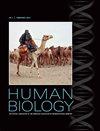Bioethics as a Dynamic Issue: Holistic Approaches to Understanding and Applying Ethics to Study Design
4区 生物学
Q2 Medicine
引用次数: 0
Abstract
Anthropologists have challenged bioethicists to incorporate more holistic approaches to applying ethics in real-world situations. Where bioethicists tend to use systematic philosophical approaches to moral dilemmas, anthropologists apply malleable approaches designed to be responsive to variable cultural contexts. For example, in decision making anthropologists emphasize the importance of community and the effects of social issues, political economy, and cultural tradition. This difference in approaches contributes to the contentious relationship between anthropologists and bioethicists. Despite nuanced perspectives, anthropologists have not enjoyed a durable role in shaping contemporary bioethics. This lack of nuance becomes problematic when researchers attempt to reconcile ethical issues against a rigid standard of morality, rather than what Patricia Marshall defines as a “culturally constituted and continually evolving” process. Reflecting on the institutional review board (IRB) review of the author’s work with African descendants in the United States and Nigeria, this discussion covers the importance of conceptualizing bioethics as a dynamic issue, especially when working with communities abroad. Comparing these review processes reveals the organizational structures, influenced by culture and society, that impact decision making in respective communities. This contribution to the special issue suggests that a focus on how IRB reviews are done can also offer insights and contextualization into community decision making. Within a cross-cultural setting, considerations of the IRB review processes can lead to more informed conversations on bioethics and can aid researchers in applying more holistic approaches to study design.生物伦理是一个动态问题:在研究设计中理解和应用伦理的整体方法
人类学家向生命伦理学者提出了挑战,要求他们采用更全面的方法将伦理学应用于现实世界中。生物伦理学家倾向于采用系统的哲学方法来解决道德难题,而人类学家则采用可塑的方法来应对不同的文化背景。例如,在决策过程中,人类学家强调社区的重要性以及社会问题、政治经济和文化传统的影响。这种方法上的差异造成了人类学家与生命伦理学家之间的争议。尽管人类学家的观点细致入微,但他们并没有在塑造当代生命伦理学方面发挥持久的作用。当研究人员试图根据僵化的道德标准来协调伦理问题,而不是帕特里夏-马歇尔(Patricia Marshall)所定义的 "由文化构成并不断发展 "的过程时,这种缺乏细微差别的观点就成了问题。通过反思机构审查委员会(IRB)对作者在美国和尼日利亚的非洲后裔工作的审查,本讨论涵盖了将生命伦理学概念化为一个动态问题的重要性,尤其是在与国外社区合作时。对这些审查过程的比较揭示了受文化和社会影响的组织结构对各自社区决策的影响。本特刊的这一贡献表明,关注如何进行 IRB 审查也能为社区决策提供见解和背景。在跨文化环境中,对 IRB 审查过程的考虑可以促成更知情的生物伦理对话,并帮助研究人员在研究设计中采用更全面的方法。
本文章由计算机程序翻译,如有差异,请以英文原文为准。
求助全文
约1分钟内获得全文
求助全文
来源期刊

Human Biology
生物-生物学
CiteScore
1.90
自引率
0.00%
发文量
88
审稿时长
>12 weeks
期刊介绍:
Human Biology publishes original scientific articles, brief communications, letters to the editor, and review articles on the general topic of biological anthropology. Our main focus is understanding human biological variation and human evolution through a broad range of approaches.
We encourage investigators to submit any study on human biological diversity presented from an evolutionary or adaptive perspective. Priority will be given to interdisciplinary studies that seek to better explain the interaction between cultural processes and biological processes in our evolution. Methodological papers are also encouraged. Any computational approach intended to summarize cultural variation is encouraged. Studies that are essentially descriptive or concern only a limited geographic area are acceptable only when they have a wider relevance to understanding human biological variation.
Manuscripts may cover any of the following disciplines, once the anthropological focus is apparent: human population genetics, evolutionary and genetic demography, quantitative genetics, evolutionary biology, ancient DNA studies, biological diversity interpreted in terms of adaptation (biometry, physical anthropology), and interdisciplinary research linking biological and cultural diversity (inferred from linguistic variability, ethnological diversity, archaeological evidence, etc.).
 求助内容:
求助内容: 应助结果提醒方式:
应助结果提醒方式:


